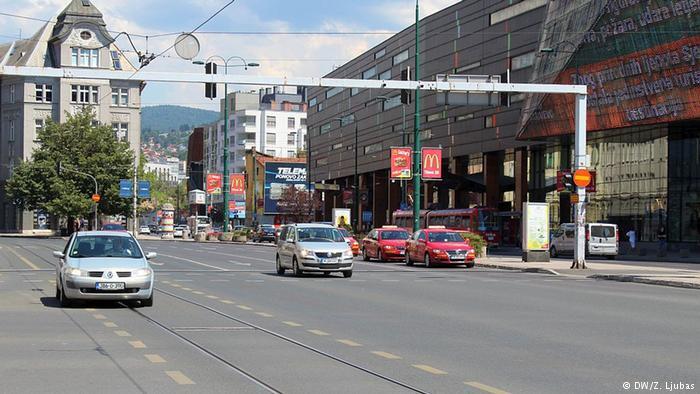Some EU countries are discussing plans for gradually replacing diesel vehicles with more ecologically acceptable alternatives. Could their dumping of diesel give car salesmen in Bosnia-Herzegovina an unexpected boom?
The numbers clearly tell the story: diesel cars, many of them more than a decade old, make up a good chunk of the vehicles puttering along the roads in Bosnia-Herzegovina.
According to Bosnia’s automobile club BIHAMK, more than 990,000 vehicles were registered in the country in 2016. Of those, 70 percent were diesel cars and about 28 percent were petrol. The number of vehicles using alternative fuels was negligible – about 1 percent.
Furthermore, 70 percent of all registered cars were more than 15 years old, due in large part to the ongoing economic crisis that followed the Bosnian War from 1992-1995.
And even though additional cars do come into the country, many of them are used. During the first six months of 2017, more than 33,000 vehicles were imported to Bosnia-Herzegovina, mostly from EU countries. Ratko Kovacevic, the spokesperson of the Balkan country’s Indirect Taxation Authority (ITA), told DW that “27,372 of those were second-hand cars.”
A first step toward ‘cleaner’ cars?
These figures would seem to leave little room for optimism – especially with regard to the environment– but Bosnia’s Ministry of Communications and Transport claims the situation is not so bad.
“The Euro 4 emissions standard, that has been in use in the EU since 2005 and 2006, stipulating that imported vehicles should not be older than 10 years, was introduced in Bosnia-Herzegovina in April 2016. Thus, the minimum technical standards were set in accordance with European standards, aimed at reducing the pollution of the environment and improving the health of Bosnia and Herzegovina’s citizens,” the Ministry of Communications and Transport stated. The new standard should lead to a gradual increase in the number of environmentally friendly vehicles – without, however, overlooking “the country’s economic development and possible burdens in that regard.”
‘Soon we’ll have cheaper diesel cars from Europe’
So could other EU nations’ proposals to take diesel cars off their roads merely push the vehicles into Bosnia? Amela Keco, Secretary General of the Association of fuel traders, is not worried about this. He does not believe an anti-diesel policy in some EU countries might turn the Balkan country into Europe’s car dump. “Bosnia-Herzegovina’s market makes no exception in comparison to markets in neighboring countries,” he told DW.
In fact, some think the diesel situation in Bosnia could even improve, at least for those who sell cars. A local car salesman from Sarajevo highlighted this when underlining how the importation of used diesel vehicles is still a profitable business in Bosnia. “We believe we will soon have newer and cheaper diesel cars from Europe. Our boss is in Germany right now, organizing new shipments to Bosnia,” he told DW on the condition of anonymity.
‘No strategy aimed at reducing pollution’
Even if newer cars hit the roads, exhaust fumes will continue to be a problem in Bosnia. Traffic emissions make up about 40 percent of the country’s substantial air pollution, Rijad Tikvesa of the Sarajevo-based Association for the Protection of the Environment (Ekotim), pointed out.
“Exhaust gases are dangerous for people and the environment, as they consist of different dangerous chemical compounds,” he explained.
He commended the introduction of the Euro 4 standards in Bosnia, but admitted that “there is still a lot to be done, because we don’t have a good policy and strategy aimed at reducing pollution.”
In his opinion, there are many ways to improve the situation: by modernizing and popularizing public transportation, for example, or improving the transportation infrastructure and introducing more rigorous technical checks for the vehicles.
“We don’t even have to invent things, we should simply follow good practices from other European cities, such as Slovenia’s capital Ljubljana, last year’s European Green Capital, or Estonia’s capital Tallinn, where you can buy an annual public transport pass for only one euro,” Tikvesa said.
Source: http://bit.ly/2vQQJBO











